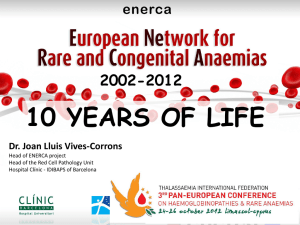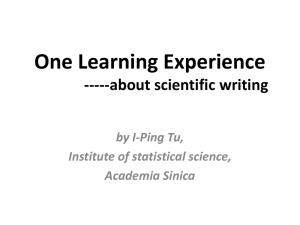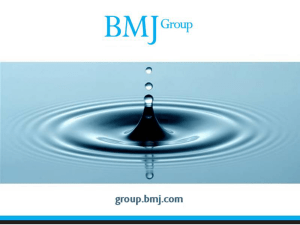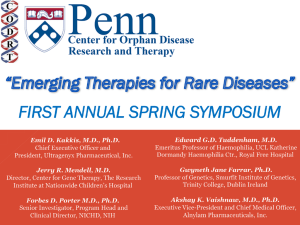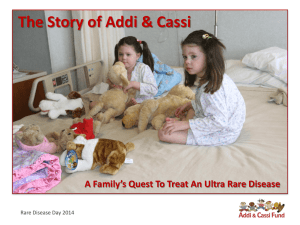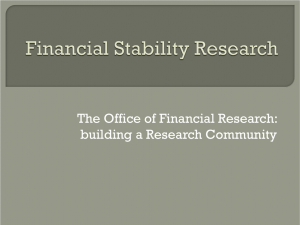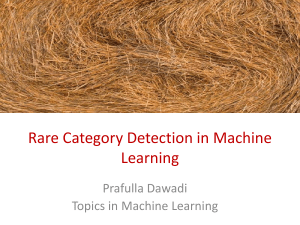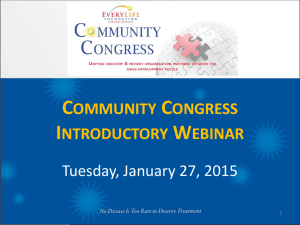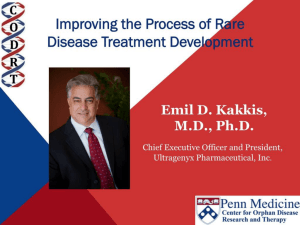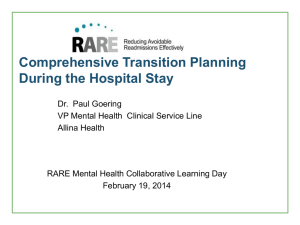1 Flash Report Commission Expert Group on Rare Diseases 3
advertisement
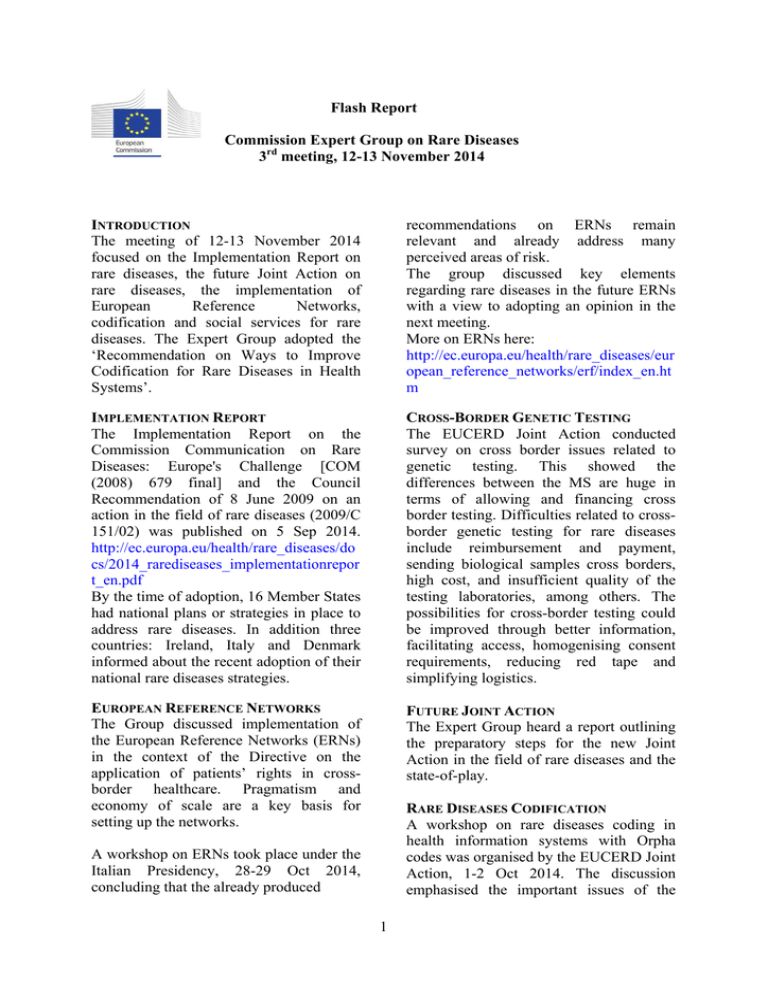
Flash Report Commission Expert Group on Rare Diseases 3rd meeting, 12-13 November 2014 INTRODUCTION The meeting of 12-13 November 2014 focused on the Implementation Report on rare diseases, the future Joint Action on rare diseases, the implementation of European Reference Networks, codification and social services for rare diseases. The Expert Group adopted the ‘Recommendation on Ways to Improve Codification for Rare Diseases in Health Systems’. recommendations on ERNs remain relevant and already address many perceived areas of risk. The group discussed key elements regarding rare diseases in the future ERNs with a view to adopting an opinion in the next meeting. More on ERNs here: http://ec.europa.eu/health/rare_diseases/eur opean_reference_networks/erf/index_en.ht m IMPLEMENTATION REPORT The Implementation Report on the Commission Communication on Rare Diseases: Europe's Challenge [COM (2008) 679 final] and the Council Recommendation of 8 June 2009 on an action in the field of rare diseases (2009/C 151/02) was published on 5 Sep 2014. http://ec.europa.eu/health/rare_diseases/do cs/2014_rarediseases_implementationrepor t_en.pdf By the time of adoption, 16 Member States had national plans or strategies in place to address rare diseases. In addition three countries: Ireland, Italy and Denmark informed about the recent adoption of their national rare diseases strategies. CROSS-BORDER GENETIC TESTING The EUCERD Joint Action conducted survey on cross border issues related to genetic testing. This showed the differences between the MS are huge in terms of allowing and financing cross border testing. Difficulties related to crossborder genetic testing for rare diseases include reimbursement and payment, sending biological samples cross borders, high cost, and insufficient quality of the testing laboratories, among others. The possibilities for cross-border testing could be improved through better information, facilitating access, homogenising consent requirements, reducing red tape and simplifying logistics. EUROPEAN REFERENCE NETWORKS The Group discussed implementation of the European Reference Networks (ERNs) in the context of the Directive on the application of patients’ rights in crossborder healthcare. Pragmatism and economy of scale are a key basis for setting up the networks. FUTURE JOINT ACTION The Expert Group heard a report outlining the preparatory steps for the new Joint Action in the field of rare diseases and the state-of-play. RARE DISEASES CODIFICATION A workshop on rare diseases coding in health information systems with Orpha codes was organised by the EUCERD Joint Action, 1-2 Oct 2014. The discussion emphasised the important issues of the A workshop on ERNs took place under the Italian Presidency, 28-29 Oct 2014, concluding that the already produced 1 More on the EUCERD Joint Action here: www.eucerd.eu sustainability of Orphanet, the cost and uncertainty of IT support related to implementing Orpha codes in the Member States. The ‘Recommendation on Ways to Improve Codification for Rare Diseases in Health Systems’ was adopted by the Expert Group. Recommendation acknowledged the lack of data about rare diseases, due to absence of codes for most of rare diseases in current versions of international nomenclatures. Member States interested in using Orpha codes should set up a working party to define optimal strategy and the next at country and an EU level. DG RTD reported on the state-of-play of the activities in the framework of International Rare Diseases Research Consortium (IRDIRC) and in particular on the outcomes of the 2nd IRDIRC conference in Shenzhen, 7-9 Nov 2014, dedicated to diagnostics, interdisciplinary technologies, therapies, and the educational aspect of rare diseases. Four new members have joined the consortium and the ‘IRDIRC recommended’ label has been developed. The need to have a comprehensive database of undiagnosed cases was raised. There are global efforts to interface different projects aiming at establishing and maintaining such databases, as well as an international network of undiagnosed cases of rare diseases. SOCIAL SERVICES DG EMPL presented the Commission’s work to support Member States in addressing the challenges of providing much-needed quality social services, emphasising the instruments within the framework of the European Semester and the work of the Social Protection Committee. RARE CANCERS Group discussed links between cancer and rare diseases policy initiatives, focusing mainly on aspects related to the methodology for consensus guidelines and clinical trials as well as on a definition of rare cancers. The state of play as regards the provision of specialised social services and integration of rare diseases into social policies and services in the EU, was presented. Work Package 6 of the EUCERD Joint Action has also developed ‘Guiding Principles for Training of Social Services Providers’ based on a collaborative, cross-sector, multistakeholder, holistic approach. During the discussion the sustainability of central specialised social care was raised as well as providing on-demand information and training to social care professionals as a more viable alternative. CONCLUSIONS BY THE CHAIR • The first recommendation of the Commission Expert Group on Rare Diseases was adopted, concerning codification. • Discussion on ERNs in the specific context of rare diseases is advancing. • The Expert Group has started discussion on social services as a key aspect of the rare diseases management. • There was a productive first exchange on rare cancers. OTHER STAKEHOLDER ACTIVITIES An update on the activities of the EUCERD Joint Action was presented, emphasising the scope for more work on registries in view of the EU Platform for rare diseases registries to be set up by the Joint Research Centre. The next meeting of the Expert Group will take place on 12-13 March 2015 in Luxembourg. 2
